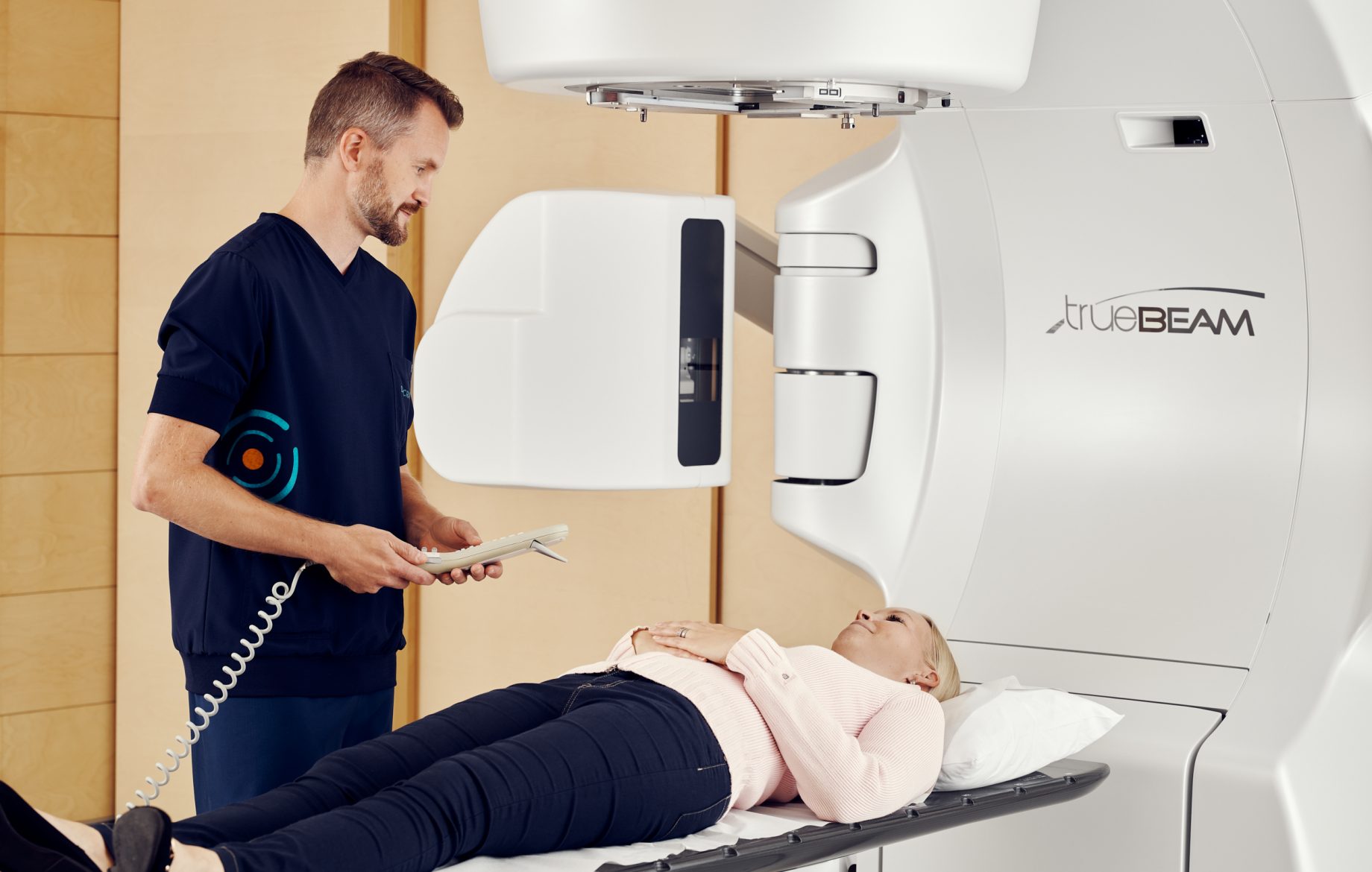Lung cancer is one of the most common cancers in Finland. Every year, approximately 2,500 Finns are diagnosed with lung cancer. In addition to the cell type, the choice of treatment depends on the stage of the cancer, the patient’s age and gender and the presence of certain general symptoms like weight loss. It is typical for lung cancer to metastasise and in such cases the treatment consists of drugs and radiotherapy.
Symptoms and examination of brain tumors
A common place for lung cancer to metastasise is patient’s brain. The brain metastases of a lung cancer patient are often diagnosed when the patient experiences typical symptoms of brain tumors, such as headache, convulsions, double vision or a stroke. In such cases, an emergency MRI of the head is performed. If the patient is diagnosed with metastases of lung cancer, it is important to start radiotherapy as soon as possible to achieve the ideal therapeutic response.
Stereotactic radiotherapy is an effective targeted mode of treating metastases
If the patient does not suffer from any symptoms, the radiotherapy of the head can begin in Docrates Cancer Center the very same day. If, however, the patient experiences symptoms caused by the tumors, cortisone treatment will be administered. In most cases, radiotherapy can begin the day after the cortisone treatment has been started. It is vital that the treatment begins as soon as possible so that the patient receives the full benefits of radiotherapy and that the metastases do not cause any more severe damage to the brain. According to current knowledge, there is no efficient pharmaceutical treatment option specifically designed for brain metastases, and thus the primary mode of treatment is always radiotherapy.
Stereotactic radiotherapy is more effective and safer than whole brain radiotherapy
Brain metastases caused by lung cancer have previously been treated with whole brain radiotherapy. According to current knowledge, however, stereotactic radiotherapy is a more efficient mode of treating brain metastases. Stereotactic radiotherapy is an extremely precise form of radiotherapy, in which the radiation is delivered with maximum precision to the tumor. Stereotactic treatment enables targeting a larger dose of radiation to the metastasis, which makes the treatment more effective. In addition, the healthy tissue of the brain is not exposed to unnecessary radiation, which eliminates the risk of long-term effects of radiotherapy, such as memory disorders.
However, according to studies, with more than three brain metastases, the most effective mode of treatment is a combination of whole brain and stereotactic radiotherapy.
The best case scenario is that the brain metastases can be treated completely with stereotactic radiotherapy. This requires that the treatment is individually and carefully planned for each patient. It is vital that the team planning and performing the radiotherapy consists of experienced experts who communicate efficiently to each other and recognise the overall situation of the patient. For instance, in cases where the patient’s overall condition is acceptable in spite of the brain metastases, a larger dose may be worth considering. If the patient’s condition is not ideal, the aim of the treatment can be to minimise the side effects while applying as large a dose as possible.
Lung cancer with brain metastases can be treated effectively
“In some cases of lung cancer, a patient may have an ideal therapeutic response to pharmaceutical treatment in some parts of the body. However, if brain metastases occur, the appropriate mode of treatment is palliative, which focuses on reliefing the symptoms. Even if a patient is diagnosed with brain metastases caused by lung cancer, it does not mean that the patient cannot be treated effectively. Correctly timed stereotactic radiotherapy treatment of brain metastases can provide a good response with limited side effects. If the lung cancer patient’s response to radiotherapy is ideal, further modes of treatments, like pharmacotherapy or immuno-oncological treatment, may be utilised thus preventing the disease to spread in other parts of the body.”
– Specialist in Radiotherapy and Oncology (lung cancer specialist) Maigo Riener, Docrates Cancer Center
Book a specialist’s appointment without a referral and receive immediate care at Docrates Cancer Center
We provide our patients with the best possible treatment. This means quickly available appointment with our leading oncologists without a referral, immediate care and comprehensive treatment. Our personnel are committed to supporting our patients along their clinical pathways. An individual treatment plan is drawn up for each of our patients, and a cost estimate of the treatment is provided after the first appointment.










